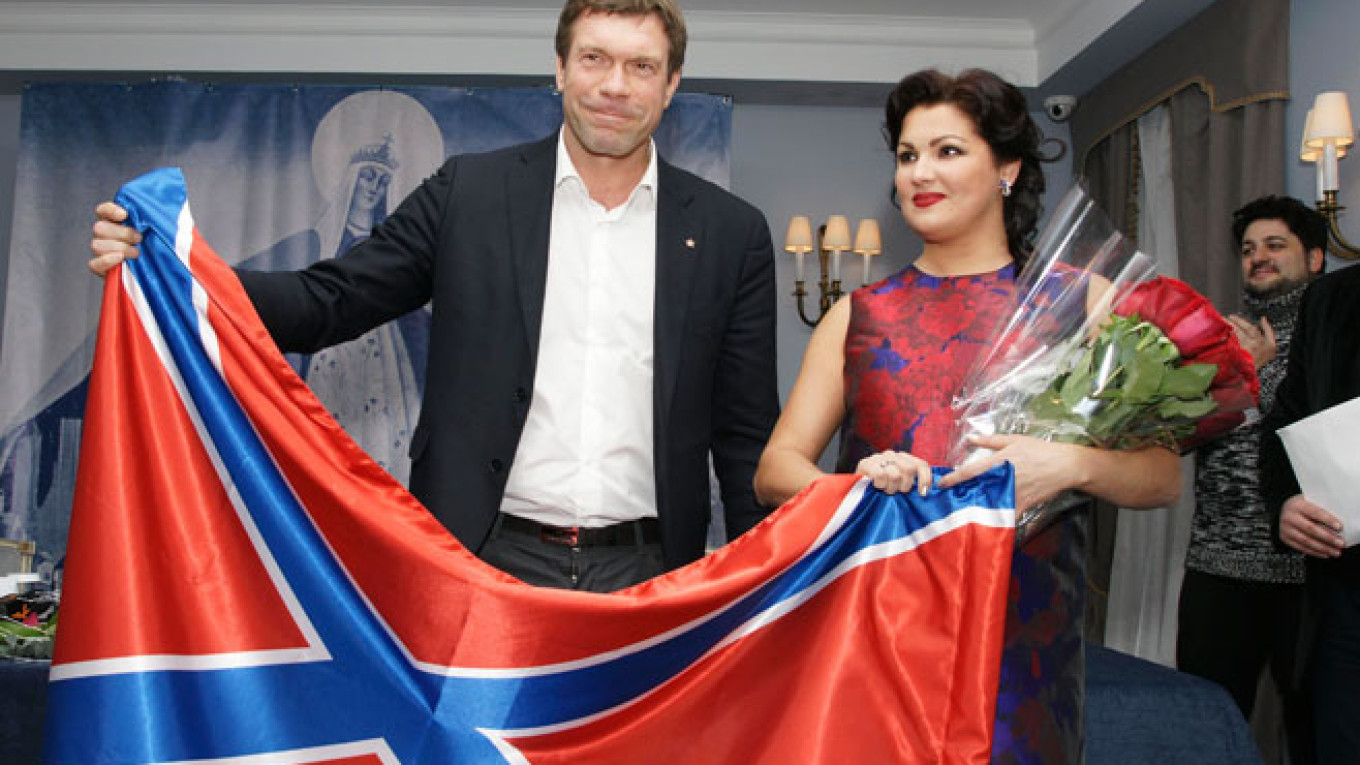The phrase, "On which side are you, masters of culture?" is well known in Russia as the title of an article Maxim Gorky published during the rule of Soviet leader Josef Stalin. The main idea was that writers, composers, artists and cinematographers should take a public stand: Are they with the people and the party or against them?
With the countless number of people arrested, imprisoned or executed during that period, it is no wonder that most who read Gorky's article immediately swore their allegiance to Stalin. But the question — "On which side are you, masters of culture?" — has been pertinent not only during Stalin's rule.
When Marilyn Monroe performed for U.S. troops fighting in Korea, it was viewed as a great act of patriotism. But 15 years later, when Louis Armstrong and Nancy Sinatra performed for U.S. troops in Vietnam, many fellow citizens condemned them because society was divided over that war in general.
"On which side are you, masters of culture?" took on particular urgency with the conflict in Ukraine this year. Immediately after Russia annexed Crimea, the Culture Ministry organized a collective public statement in support of the government's actions.
Eyewitnesses report that the authorities applied tremendous pressure on popular actors, musicians and writers to make them sign. Some managed to squirm out of it, but others did not. Theater directors were trapped: Most rely on government-owned buildings for their livelihood.
Many Russian artists and performers who are famous even internationally had to make a difficult choice between loyalty to the ruling regime and their public reputations. Sadly, almost all sacrificed their reputations. My God! The liberal public experienced so much disappointment as a result.
The scandal continues to reverberate through the cultural community. No sooner had the singers Iosif Kobzon, Oleg Gazmanov and Valeriya spoken out in support of President Vladimir Putin's aggression and against the "Kiev junta" than organizers withdrew their invitations to the festival of Russian songs in Jurmala, Latvia. In protest, Kobzon flew to Donetsk and gave a concert for the pro-Russian separatists.
Conversely, when Russian rock icon Andrei Makarevich gave a free concert for displaced children in the Ukrainian town of Svyatohirsk after it was freed from separatist control, state-controlled media unleashed a ferocious campaign to discredit him that rivaled the vitriol communist authorities once hurled at dissident Alexander Solzhenitsyn. Not only did they brand Makarevich a traitor every day in newspapers and television, but they even canceled his concert tour in dozens of cities, claiming it was done "at the initiative of the local authorities."
Singer Diana Arbenina also saw her Russian concert tour canceled. Her crime? At a concert in Ukraine she told her audience that she was ashamed of her colleagues who had not shown support for the Ukrainians. That got Arbenina blacklisted overnight. Russia's ultra-patriots also branded ballerina Anastasia Volochkova an enemy of the people for an interview she gave in Kiev.
Examples of the opposite extreme also exist. The widely popular Russian actor Mikhail Porechenkov traveled to Donetsk, where he donned a bulletproof vest and fired a real gun in the direction of the Ukrainian forces. That prompted a different segment of the population to protest. When Porechenkov next took the stage at the Moscow Art Theater, audience members catcalled and threw various objects at him.
Opera star Anna Netrebko was seen holding a flag of Novorossia. She donated money to restore the Donetsk Opera Theater. The problem is that, with television cameras rolling, she handed the money to one of the terrorists that had seized the city. Now Moscow opera lovers curse Netrebko and Austrian Airlines is canceling its advertising contract with her.
It seems that Russia's cultural elite is going through a difficult time once again.
Andrei Malgin is a journalist, literary critic and blogger.


